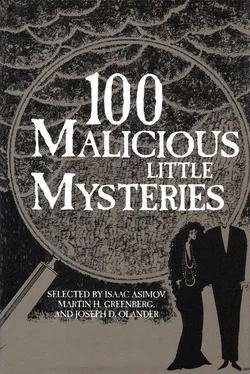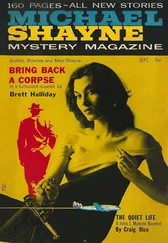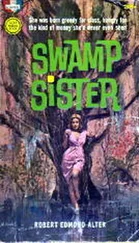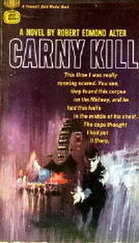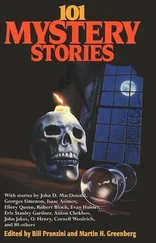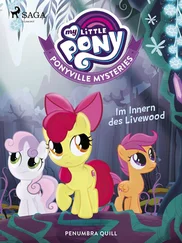“Look, are you going to take me in or what?”
“Take you in? Oh, you mean to the Grief Center.”
“Is that what they call it in California?”
“For sure. We can rap anywhere you like if the vibes are wrong here.”
“What is a vibe, Mr. Beatts? If I heard Dawn use that word once I...”
“Now stay loose, Sidney. I hear what you’re saying and I sense you’re uptight behind it. You couldn’t relate to Dawn’s lifestyle, right?”
He began picking up cats and taking them to the carriers on the deck. I didn’t want to blow the energy we had going, so I followed along beside him.
“She was all caught up in what they call the human potential movement,” he said. “Transactional analysis, transcendental meditation, self-actualization, bioenergetics, biofeedback...”
“She must have been a heavy lady.”
“She talked funny. Like you. And she cooked things like wheat germ soufflé. And she wanted the house to be ‘natural.’ You couldn’t go to sleep without a cat curled around your neck, or a spider plant tickling your nose. It got so every time I saw her do that crazy yogurt...”
“Yoga.”
He closed the last carrier and we went back into the house.
“I used to call it yogurt to annoy her,” he said, squatting by the books again. “Anyway, when she started to stand on her head, she’d do it first with her feet against the wall and then she’d let go of the wall and stick her legs up in the air. Well, every time I saw her with her feet like that, getting little toeprints all over the paint, I’d think how easy it would be just to grab her and...” He stopped.
“And what?”
“And snap her neck.”
I nearly clapped him on the back I was so relieved. At last he’d gotten his energy flowing in a positive way! “I have to acknowledge you, Sidney,” I said. “It’s really a far out thing to see someone being so open about his fantasies.”
Sidney tried to speak, but he couldn’t. He took out a handkerchief and blew his nose. Sometimes you have to hurt people to help them so I took a chance.
“You killed her, didn’t you, Sidney?” I said.
He kept his eyes down as he put the handkerchief back in his pocket. “You knew all along,” he said finally.
“For sure,” I said supportively. “Self-recrimination is very common in the first stage of the grief cycle, and I want you to know that it’s okay.”
“Okay?” he said. “I don’t understand.”
“A lot of people get on that kind of trip when something like this happens. You and Dawn weren’t getting along and you feel guilty about it now, right? You think she died because of something in your karma.”
The way Sidney looked at me I could tell he was surprised. He didn’t really expect anyone else to understand. He started to speak, but I stopped him.
“That’s okay,” I said. “You know? Because it’s only the first part of the cycle. You know what’s next? Personality reorganization! Sidney, you’ve got a really positive thing to look forward to.”
Sidney sat down on one of the cushions and started to laugh. It doesn’t happen often that somebody really flashes on the whole cycle like that, and it was a far out thing to see.
“Mr. Beatts,” he said. “I don’t remotely understand where you’re coming from...”
“Don’t try, man.”
“But I think I can flow with it.”
The Best Place
by A. F. Oreshnik
Dr. Jason Whitney saw the two federal agents enter the crowded restaurant. Their rumpled suits and stubble-covered cheeks betrayed the fact that they had been too busy to think of appearances for some time. They moved wearily toward him along the line of booths against the wall, looking for an empty one. When they reached the booth where the young doctor was sitting alone, he spoke to the agent he recognized, a deceptively soft-looking man in his forties.
“Hello, Tom. Have a seat.” He indicated the place opposite him with a sweep of his hand. “There probably aren’t any empty booths at this hour. A lot of people stop here for breakfast on their way to work.”
Tom Campbell slid heavily into the booth and was followed by his look-alike companion. “I’d like you to meet my partner, Joe Moffet, Dr... Dr...” Campbell snapped his fingers, trying to dislodge the name from his memory.
“Whitney. Jason Whitney,” the doctor offered with a smile, not the least offended at not being remembered.
“Yeah, that’s right,” Campbell acknowledged with a nod as Joe Moffet and the young doctor clasped hands briefly.
“You men look like you’ve had a hard night,” the doctor said.
“You can say that again,” Campbell answered. “We haven’t been out of our clothes in two days. Just brought a man back from Spain.”
“Extradition?”
Campbell gave a wry smile. “You could call it that. Our man was staying in Andorra, that little postage-stamp country on the border between Spain and France. They’d have let him stay there until his money ran out, which would’ve taken a couple of thousand years or so. We have no treaty with them.”
“So what happened?”
“The usual. We pretended we’d lost interest in him and waited for him to get careless. When he made the mistake of taking a walk too close to the Spanish border, we were ready. Next thing he knew, Joe and I each had one of his arms and were marching him past the Spanish customhouse. We tossed him into a car and rushed him to a plane we had waiting at one of our bases. The Spanish authorities pretended they didn’t see a thing.”
“Seems like a lot of trouble and expense over just one man,” Dr. Whitney said.
“It was Henry Hammond.” Campbell had a touch of pride in his tone.
A waitress came to take their breakfast orders. As soon as she was gone, the doctor repeated the name. “Henry Hammond... It does sound a bit familiar. Should I know the name?”
“He’s the big-shot financier who jumped bail and skipped the country a couple of years ago. He’d built himself an empire, using phony balance sheets and illegal manipulations. He got away with just about every nickel from his companies’ treasuries.”
“Oh, yes, now I remember. It made quite a splash in the papers at the time. What did you do with him?”
“Dropped him off at your place ten minutes ago,” Campbell said.
The second agent, Joe Moffet, had been sitting quietly, but now he twisted his face into a puzzled expression and said, “Huh?”
Campbell turned to him. “The doctor is in charge of the infirmary at the Federal House of Detention on West Street,” he explained. “He’ll probably be giving our friend a physical examination today.”
“I check all new prisoners,” Dr. Whitney agreed.
The waitress returned with their orders. They didn’t say much until they had settled back to enjoy their coffee. Then the conversation returned to Henry Hammond.
“Do you think he’ll return the money he stole?” the doctor asked.
“That’s something you’ll have to ask Hammond. We couldn’t get a word out of him all the way across the Atlantic. He probably has it safely stashed away in a couple of dozen Swiss banks. One thing’s sure — no one will ever see it again unless he wants them to.”
“I wonder what makes a man decide to be a criminal?” the doctor mused.
Campbell shrugged. “Who knows? People don’t always do the things you’d expect, or fit into patterns the way you think they should. Take yourself, for instance. What’s a bright young guy like you doing in the Public Health Service? There’s no military draft anymore, so you didn’t choose it as an alternative service the way doctors and dentists have in the past. I’ll bet you could have had your pick of the private hospitals.”
Читать дальше
